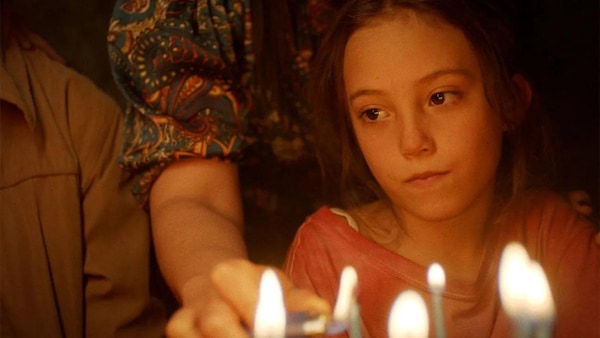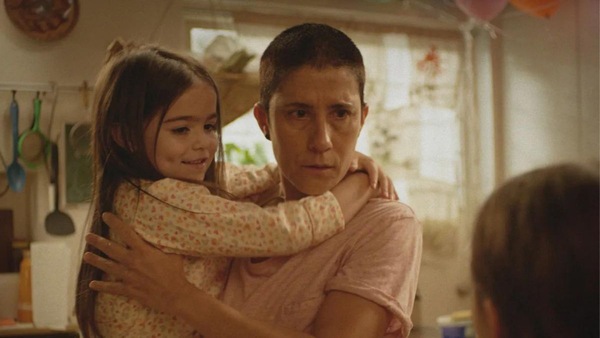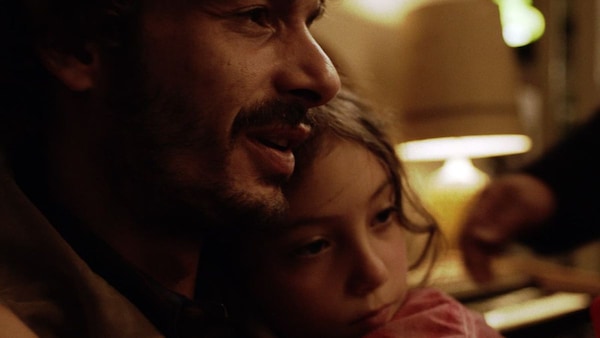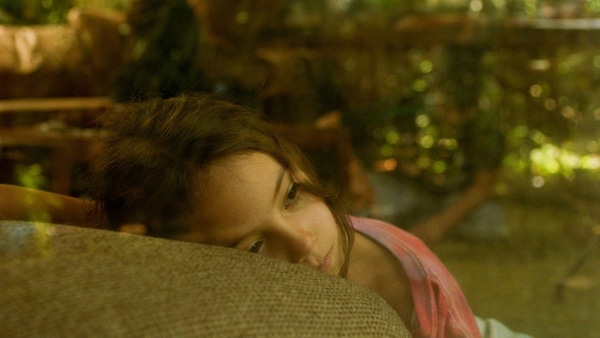Tótem Is A Quietly Powerful Work Pulsing With Unspoken Emotions
In Lila Avilés's second feature film Tótem, a birthday bash doubles as a living funeral where death feels like an uninvited guest with dread as its plus one.

Promo poster for Totem.
Last Updated: 10.30 PM, Apr 07, 2024
Our contributing critic Prahlad Srihari sampled the best among world cinema's most recent offerings at the Bengaluru International Film Festival (BIFFes). This is the last in a four-part series of reviews from the festival. Read Part 1, Part 2 and Part 3 here.
*
LIFE and death are two sides of the same eternal coin, Mr Ibis tells Shadow in Neil Gaiman’s 2001 novel American Gods. The same idea underpins Lila Avilés’s second feature Tótem, where a birthday bash doubles as a living funeral. Family and friends come together to say farewell to the ailing Tonatiuh (Mateo García Elizondo) at his old family home in Mexico City. Between the organising by day and the gathering by night, the send-off sees a grab bag of coping strategies from person to person. Some join in the celebration of a life; others cloister themselves in the face of impending death. Some give eulogies; others bake and drink their way through. For Tonatiuh’s seven-year-old daughter Sol (Naíma Sentíes), the day takes on the momentous import of a formative memory, the climax of a summer of upheaval where painful realisations move abstract ideas of time and mortality to the concrete.
While the rest of the family gears up for festivities in the evening, Avilés hones in on Sol’s apprehension of an approaching personal tragedy she can’t fully comprehend. How is a child to make sense of a day encompassing balloons and candles, shamanic rituals and family disagreements, welcomes and goodbyes? Helplessly watching a loved one slowly succumb to a terminal illness can be a profoundly isolating experience, all the more so for a child who is yet to grasp the permanence and irreversibility of death.

Death feels like an uninvited guest with dread as its plus one in Tótem, a quietly powerful work pulsing with unspoken emotions. On the morning of the party, Sol is dropped off at the venue: her grandpa’s house. Hidden away in one of the bedrooms is Tona resting under the care of a nurse. Cancer has left him so emaciated he barely leaves the room. Not having seen her father in a while, Sol hangs by the door hoping to catch a peep, only to be turned away each time. For he must gather whatever strength he can to face the guests later in the evening.
Setting the film over a single day in a single location allows Avilés to condense and consolidate both incident and emotion. Rooms corner the family into reckoning with what they would rather leave unsaid. Hallways lined with paintings give a sense of family and personal history. Every space is dense with life yet haunted by the spectre of death. Our tour guide through it all is Sol, who curiously observes the party preparations, the gentle murmurs, the commiserating expressions from the edge of the frame. Bored and alone in her sadness, Sol wanders around the house. She ornaments the paintings with snails, takes refuge in a pillow fort, and quizzes Siri about the end of the world — all the while waiting to be reunited with her dying dad. With tight close-ups and handheld camerawork, the camera crouches down to meet a child at eye level. Sentíes brings an unaffected naturalism as a newcomer, locating Sol’s inner world and carrying us along with her every mood and realisation.

Even if death is introduced into a child’s world as an inescapable fact in an unsparing universe, it is done with such sensitivity that Sol’s story achieves a lyrical grace. Each family member, spread across three generations, faces the inescapable fact in their own way. Sol’s teen cousins are too wrapped up in their own bubble, playing video games and watching TV, to grasp the gravity of the festivities ahead. Aunt Alejandra (Marisol Gasé) invests in dubious psychics who promise to cleanse the home of evil spirits with burning bread rolls. Aunt Nuria (Montserrat Marañon) has shaved her head in solidarity and puts all her efforts into baking the perfect cake at the risk of missing the party. Grandpa Roberto (Alberto Amador) is pruning a bonsai tree as a parting gift for his son. Not having the money to give Tona the best possible treatment and every chance to beat his illness has put a strain on the family. The varied responses speak to how loss can make even those who love each other feel so alone in their struggle.
At the beginning of the film, we watch Sol and her mother Lucia (Iazua Larios) both hold their breaths to make a wish as they drive under a bridge. Sol reveals she wished “for daddy not to die.” In the end, when Sol stares at the candles on her daddy’s birthday cake, the moment again feels like a long-held breath to make the same wish come true: “for daddy not to die.” What dying means does slowly begin to dawn on her over the course of the day, as fear metastasizes into a heart-breaking awareness. Yet, she can’t help but hope with the strength of all her innocence for the wish to come true.

From the dogs to the bugs, all the living beings inhabiting the nooks and crannies of her grandpa’s house will die one day too, as Sol learns. Before the party, Tona presents his daughter with a painting of all her favourite birds and animals as a totem to remind her of him even after his passing. “I painted this so you could look at it whenever you want, because sometimes there are things you really want to see but can’t,” he tells her. “But they stay with you anyway.” Between enduring the slow torture of faint hope and embracing the soothing thought of the dead living on in memories, Sol tastes a lifetime of growing up in a single day.
Tótem was screened at the 15th Bengaluru International Film Festival (BIFFes).
